Women in Engineering Day 2023: How graduate students at Lassonde are changing the face of Civil Engineering
Tags:
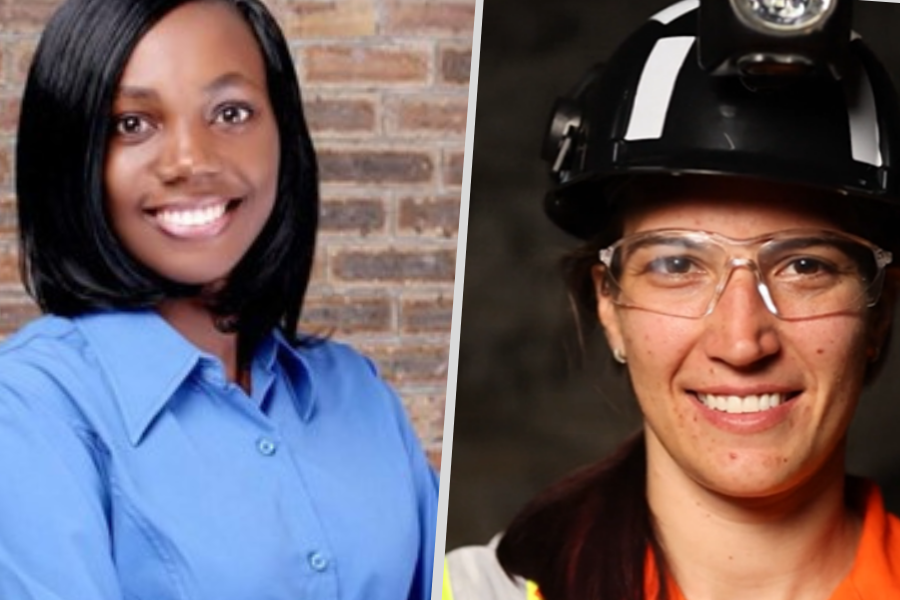
Canada has experienced its largest growth of women in post-secondary engineering programs and professions over the past decades, through the support of various organizations, events and campaigns addressing underrepresentation. However, with women making up a meagre 14% of practicing engineers in Canada, there is still a crucial need for improvement. Each year on June 23, Women in Engineering Day is celebrated to honour the achievements of women and raise awareness of the actions needed to increase representation in the field.
Today, we’re sharing the journeys of two impactful women from the Civil Engineering department at York University’s Lassonde School of Engineering, Peace Ikpotokin (MASc candidate) and Josephine Morgenroth (recent PhD graduate), who are outstanding examples of women tackling challenges in engineering and promoting positive change.
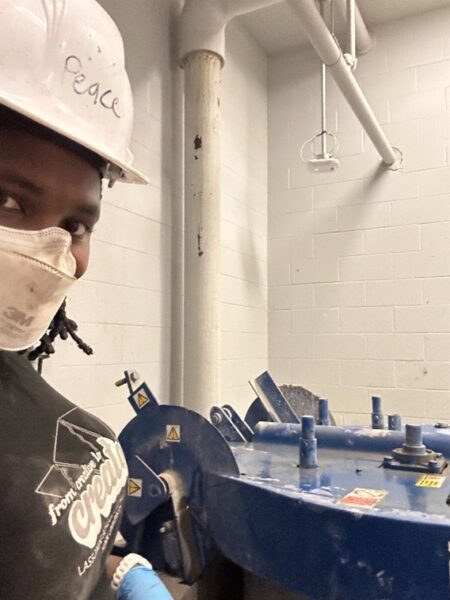
Peace Ikpotokin was inspired to pursue engineering through her natural interests. “I always enjoyed science, but not the biology part,” she says. “I loved to draw and understand how different things worked. I also loved to build and fix things; whenever my mom would get new appliances, I was the one who put everything together.” Ikpotokin was the first in her family to get involved in engineering, obtaining her bachelor’s degree in civil engineering from the Federal University of Technology Akure in Nigeria. A move that later inspired both her sister and mother to pursue their engineering degrees as well. Ikpotokin is now in the final year of her master’s degree at Lassonde where she is conducting research with Professor Liam Butler.
“Engineering is versatile, it really has no limits,” says Ikpotokin. Her research is focused on monitoring the distributed strain behaviour of two-way slabs produced with low-carbon concrete. The production of concrete poses a major problem for the world, accounting for 7% of carbon dioxide emissions globally. Her research aims to help find a solution to this growing issue by developing a more environmentally friendly alternative to conventional concrete, by replacing traditional materials such as gravel, sand and cement, with recycled alternatives.
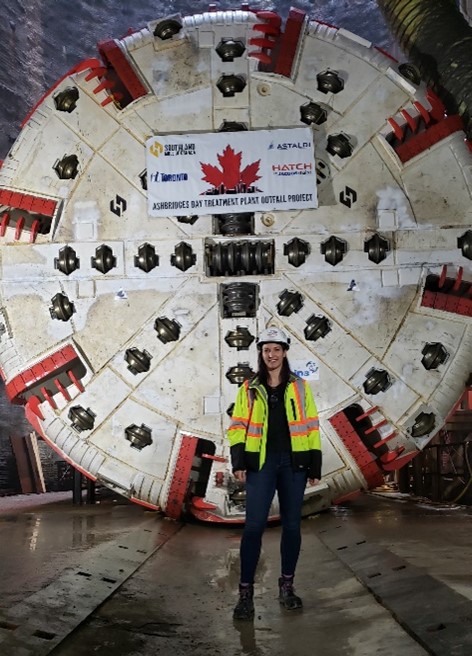
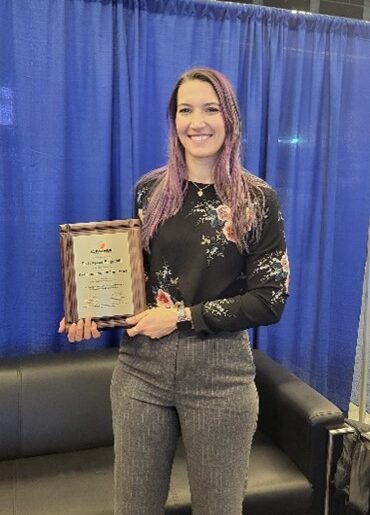
Josephine Morgenroth’s educational journey was driven by her love for geology and the great outdoors. She received her Bachelor’s degree in Geological Engineering from Queen’s University, her Master’s degree in Civil Engineering from the University of British Columbia, and in 2022 she completed her PhD in Civil Engineering at Lassonde under the supervision of Professors Matthew Perras and Usman Khan.
“It was interesting having two PhD supervisors,” says Morgenroth. “I had the opportunity to blend two disciplines, which was challenging at times, but it was also motivating to be one of the first to do this research.” Morgenroth’s PhD research combined disciplines of machine learning and rock engineering to predict geotechnical behaviour underground. Contributing knowledge to an emerging field, her work aimed to enhance the underground rock engineering design of structures such as tunnels, in a way that is useful for practical rock engineers.
Since graduating with her PhD, Morgenroth is utilizing her unique, interdisciplinary experience working as a Technical Services Manager at digital mining company RockMass Technologies. In her role, she supports clients by coordinating fieldwork and providing expertise to help implement solutions for rock engineering problems.
Ikpotokin and Morgenroth are in two very different stages of their engineering journeys but share a momentum that pushes them forward, with Ikpotokin just breaking ground in Civil Engineering research and Morgenroth closing the final chapter in academia and starting her career. Both women are paving their own way to future success, demonstrating what it means to be a woman in engineering.
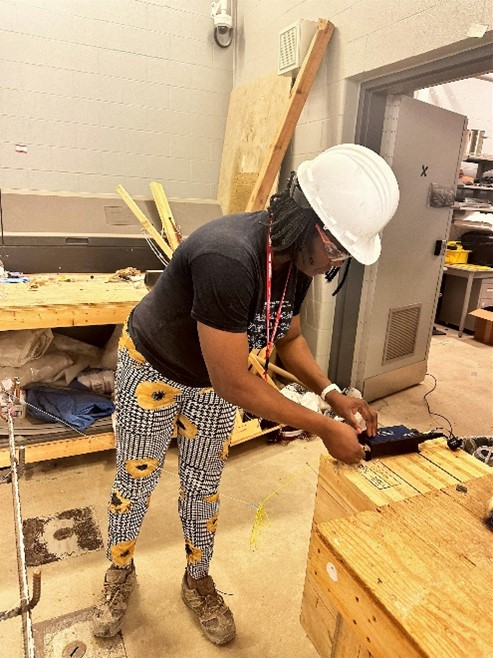
“There is a low number of women in engineering, the gap is very clear,” says Ikpotokin. “It would be nice to have more peer support and female students. It’s really satisfying and empowering to work alongside other women.” Ikpotokin is a firm believer in using her platform to support other women in STEM and positively impact their journeys.
Following her undergraduate studies, Ikpotokin quickly made her industry debut as a site engineer, structural engineer and supervisor for various building and construction projects. Ikpotokin also brings her experience and knowledge to the classroom as a teaching assistant, demonstrating her engineering expertise and inspiring women along the way.
Her efforts in academia and the industry have resulted in esteemed recognition through many awards such as the Professional Engineers Ontario (PEO) International Peace Scholarship, American Association of University Women (AAUW) Scholarship and numerous certificates acknowledging her leadership efforts. She is also a highly active member of the Society of Women Engineers (SWE), an organization that empowers women to achieve their full potential in engineering. As a high-achiever and first-generation engineer, Ikpotokin serves as an influential role model for other women coming up in the field.

Morgenroth shared a refreshing experience as a woman in engineering, indicating small steps toward much-needed change. “There was actually a lot of women representation in grad school, but not so much in the mining industry,” she says. “The company I work for is a huge exception to this. Our CEO is a woman of colour, and a lot of our team members are women too. We can talk about someone’s wedding at lunch, and then get into rock mechanics right after – it’s great.” Before joining RockMass Technologies, Morgenroth’s current position was non-existent. Determined to secure a role that fit her passions and expertise, she created her own job opportunity with self-confidence and persistence developed from her educational journey. “You can’t be afraid to ask for opportunities, that’s how I got this job,” says Morgenroth. “Women are always told that they are a nuisance when they ask for things. You’re not a nuisance, you’re persistent.”
In addition to helping secure her current position, Morgenroth’s dedication and persistence have resulted in numerous achievements, including the Professor Doug Stead PhD Thesis Award from the Canadian Rock Mechanics Association, NSERC Alexander Graham Bell Canada Graduate Scholarship and Joan Bath Award for Advancement of Mineral Industry. She has also used her platform to inspire and motivate women in engineering through various talks at Lassonde. “Representation is important in fields like engineering,” says Morgenroth. “Diversity breeds innovation and challenges people to think differently. I love working with other women; I get to hear fresh perspectives and have a sense of relatability.”
Ikpotokin and Morgenroth recognize the power of women working together in engineering, as well as the work that still needs to be done to improve representation in the field. Their efforts have been supported by family members, research supervisors, the Lassonde community and many others.
Though Ikpotokin admits there are not many women conducting research in her discipline, she appreciates the continuous encouragement received from her peers at Lassonde and her research supervisor, Professor Butler. “He’s been awesome, I couldn’t have asked for a better supervisor. He has become a great personal and professional mentor to me,” says Ikpotokin. “He has given me more than just an amazing learning experience, he has also supported me during my challenges as an international student away from home.”
Like Ikpotokin, Morgenroth has a healthy support system that helped propel her journey in engineering. “My dad was an engineer and he really encouraged equality with my sister and me. She’s actually an engineer too,” says Morgenroth. “It didn’t matter that we were girls, I think that helped build our mindset and work to get to where we are now.” Morgenroth also received immense support from her PhD supervisors, giving her independence to contribute pivotal knowledge to a novel field of research.
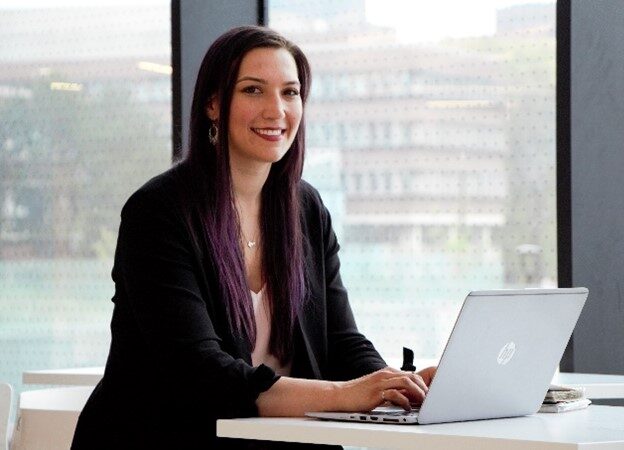
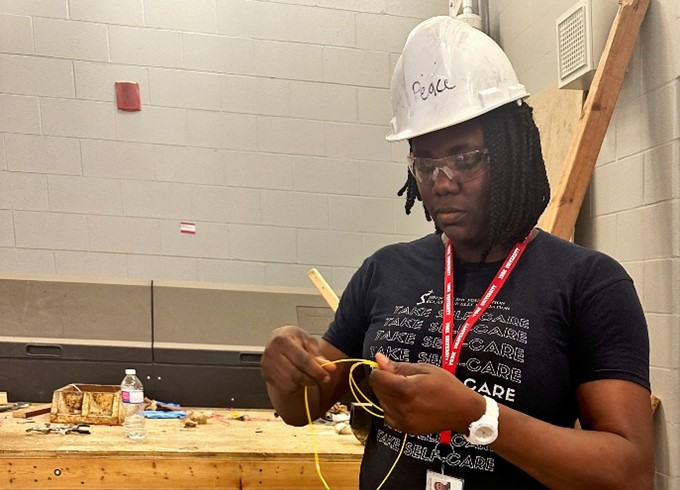
Lassonde continues to support the journeys of passionate women in engineering by fostering a community rooted in equity, diversity and inclusion (EDI) principles. With numerous programs, campaigns and funding opportunities geared towards supporting women and girls in STEM, Lassonde strives to inspire, motivate and help shape female changemakers who will be the future face of engineering.